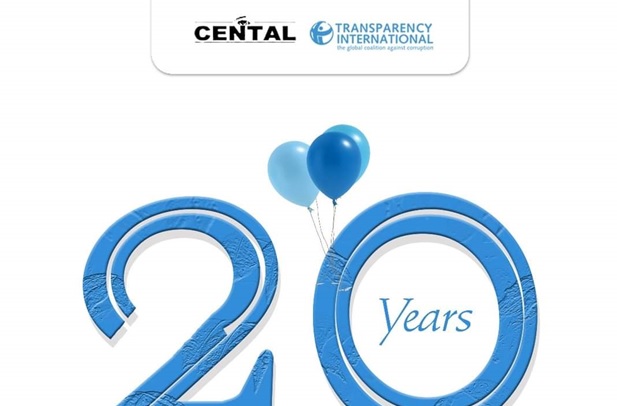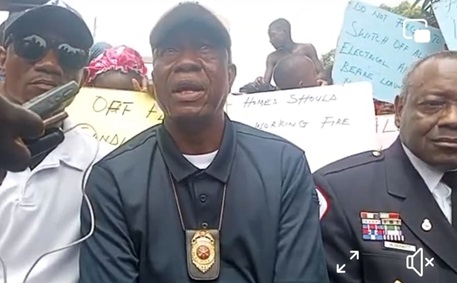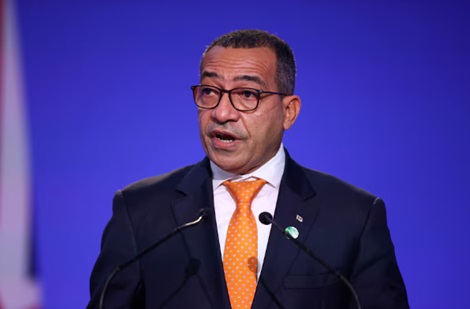By Edward Blamo and Gerald D. Yeakula
MONROVIA – It all began in the aftermath of a fourteen-year civil conflict. Liberia’s good governance and anti-corruption image looked blurred. The country’s position as a once respectable member of the international community took a downward spiral chiefly because of its dysfunctional governance infrastructure.
By 1980, 133 years of elite dominance and marginalization of majority of the population was ended by a coup d’etat. In the years that followed, however, corruption in the forms of patronage and embezzlement thrived, culminating in civil conflict and state collapse by 1990. Further, the period between 1997 to 2003 was marked by criminal activities, while the immediate transition period was marked by tacit acceptance of corruption and impunity as a compromise for peace and stability. It was against this backdrop that the idea of a pro-governance institution with a niche in anti-corruption emerged.
In May of 2004, the Center for Transparency and Accountability in Liberia (CENTAL) was founded by few Liberians including Thomas Doe Nah and Jasper Kumeh of blessed memory, and James Thompson with the vision of a corruption-free Liberia where everyone acts with transparency and accountability in all their dealings. In May 2024, CENTAL turns 20. The road to twenty has been bumpy, curvy, and smooth at intervals.
There have been challenges with availability of human resources, financial resources, logistics, amongst many others. Yet, the institution has grown and continues to withstand the trying times.
From a small office space on 21st Street, Sinkor with a single desktop computer to a downtown office on McDonald Street, and to its current location at 22nd Street, Sinkor, CENTAL continues to serve the Liberian people. It has also grown from a contact group of Transparency International (TI) to a Chapter in Formation, and to a National Chapter status in 2013—an accreditation it has maintained over the years through compliance with TI’s standards.
Initial efforts by the institution saw a partnership with the then Good Governance Commission (GGC), now the Governance Commission (GC), for the development of the country’s first-ever National Anti-Corruption Strategy in 2006. The strategy led to the establishment of the Liberia Anti-Corruption Commission (LACC) in 2008 and the enactment of a Freedom of Information Act in 2010.
Other reforms included amendment to the General Auditing Commission (GC) Act to ensure independence, enactment of a Public Financial Management Law, and ensure Liberia’s enrollment with the Extractive Industries Transparency Initiative. Recent efforts led to passage of the Whistle Blower Law, Witness Protection Law, and the grant of direct prosecutorial power to the LACC.
Key projects implemented include the African Parliamentarian Network Against Corruption, Poverty and Corruption in Africa, Land Corruption Africa, Resource N You, Land Rights and Mining, mining for Sustainable Development, and the National Integrity Building and Anti-Corruption (NIBA) Program.
When the story of CENTAL is told, the dedicated service of Sister Mary Laurene Browne and Cllr. T. Negbalee Warner as Board Chairperson, and other Board members including Kenneth Y. Best, James Thompson, James Dorbor Jallah, Sara Beysolow Nyanit, Massa Crayton, and Eva Flomo, amongst others, will stand out.
Their oversight over the years has been crucial in getting the institution to navigate the vicissitudes of its existence. CENTAL’s Executive Directors, i.e. Jasper Kumeh, Thomas Doe Nah, and Anderson D. Miamen will also feature prominently for hands-on contributions and strategic leadership. Contributions of persons who have served the Secretariat in different capacities will be acknowledged.
They include George Ebba, Catherine Karmo, Sarnyenneh Dickson, Peaches Kumeh, Shine Williams, Onike Gooding Freeman, Archie Bawo, Jonathan Domah, Zeoweh S. Sumo, Abel G. Johnson (deceased), Melvin Suah, William Tali, Numen C. Wheaton, Randall Makor, Brezhnev Paasewe, Gerald D. Yeakula, Eric S. Cisco, Samuel Sackie, Jamiel Biehdyu, Hamilton Greene, Irene T. Bass, Williamson Wheyee, Torwon F. Gensee, Mark Boahndao, Jerryline T. Wonde, Isaac F. Nyantte, Bendu Kpoto, Siafa Kmara, Sam Zota, John Sando, Marian Haba, Olive Weegi, Matus D. Davies, Varney Freeman, Akiah P. Glay-Dormoh, Mark Neufville, Samuel G. F. Paye, Leelah P. Semore, Jeremiah D. Moye, Sylvester Varmah, Edward Blamo, Godfrey Sumo, Joseph F. Seth, amongst others.







